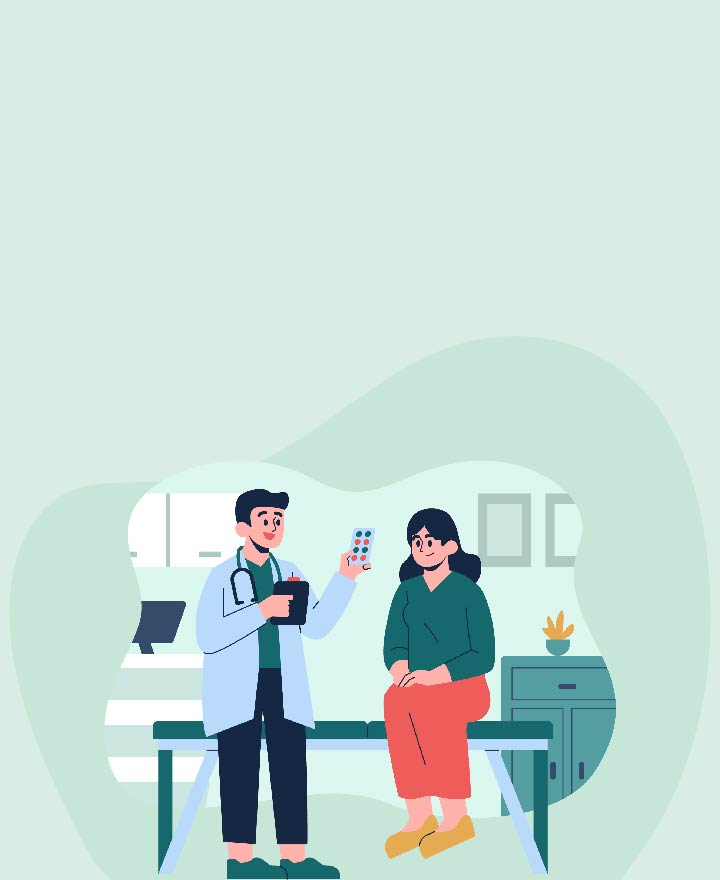

A Comprehensive Guide to ADHD Treatment
ADHD is a mental disorder that affects both, children and adults. A timely diagnosis is essential for symptom management and with several treatment options available, ADHD can be managed successfully. Take a look at the article to know about various treatment options available.
What is ADHD?
Attention Deficit Hyperactivity Disorder (ADHD) is a neurodevelopmental disorder that affects the way a person thinks, processes emotions, and responds to the environment. ADHD is commonly diagnosed during childhood, typically in school settings where symptoms of the condition, such as problems with behavioral control, anger issues, distractibility, and inattention, are most evident. In few cases, it is left undiagnosed as children don’t exhibit any ADHD symptoms.
Symptoms of ADHD
Some of the most common symptoms:
• having trouble focusing or concentrating on tasks
• being forgetful about certain tasks
• being easily distracted
• talking excessively
• interrupting others when they’re carrying out a task
• making frequent mistakes or missing details while they’re studying or working
• losing items frequently
• having trouble organizing daily tasks
Talk To Your Doctor
Effective treatment for ADHD often includes several approaches such as medication and one or more types of therapy, as well as behavioral measures that you can put into practice as a parent. Getting proper treatment can help you manage your ADHD symptoms and feel better. So consult your doctor to learn more about what treatment might work best for you.
What are ADHD Treatment Options?
1. Medications
Medication is often an important part of treatment for someone with ADHD. However, it can be a difficult decision to make. To make the best decision, you and your doctor will work together to decide whether medication is a good option. You and your doctor will also determine what type of medication might be best. The two main types of ADHD medications are stimulants and nonstimulants.
2. Therapy for ADHD
Several therapy options can help with ADHD. This includes:
- Psychotherapy: There are different types of psychotherapy that can provide a way for you to better manage symptoms of your ADHD. You may also be able to explore your behavior patterns and learn how to make healthier choices in the future.
- Behaviour therapy: The goal of this therapy is to teach someone how to monitor their behaviors and then change those behaviors appropriately. These strategies often involve some sort of direct feedback to help learn suitable behaviors.
- Cognitive Behavioural Therapy: This is a short-term, goal-focused form of psychotherapy that aims to change negative patterns of thinking and replace them with a renewed framing of how you feel about yourself and your ADHD symptoms.
Additional Treatment Options
1. Social Skills Training: This can sometimes be useful if someone expresses difficulty in social environments. These skills help a person with ADHD work and socialize better with others.
2. Parenting Skills Training: This can give you tools and techniques for understanding and managing your child’s behaviors.
3. Support groups: This can be great for helping people connect with others who may share similar experiences and concerns. Knowing you’re not alone in dealing with ADHD can be a huge relief. You can ask your doctor how to find support groups in your area.
Conclusion
ADHD may disrupt people’s lives, but there are many options that can help to manage your symptoms. The type of treatment can range from behavioral intervention to prescription medication. So make sure to discuss these with your doctor to find out how to best approach your ADHD.
One of the important components of our overall wellness is also being financially secured. Healthcare emergencies can happen any time, but a good health insurance can protect you from such uncertain situations. To know more about it, click here
Source: Healthline, Mayoclinic
Disclaimer: This blog provides general information and discussions about health and related subjects. The information and other content provided in this blog, website or in any linked materials are not intended and should not be considered, or used as a substitute for, medical advice, diagnosis or treatment. Kindly contact your Doctor before starting a new medicine or health regime.
Related Articles
What Is ADHD And How To Diagnose Amongst Children And Adults
How Social Media Affects Your Mental Health And Leads To Anxiety
Mental Stress Can Affect Your Body – Find Out How
Is Depression Covered Under Health Insurance? Find Out
How Meditation Apps Help in Mental Well-being
Published on March 29, 2023

















 Health Insurance
Health Insurance  Travel Insurance
Travel Insurance  Car Insurance
Car Insurance  Cyber Insurance
Cyber Insurance  Critical Illness Insurance
Critical Illness Insurance
 Pet Insurance
Pet Insurance
 Bike/Two Wheeler Insurance
Bike/Two Wheeler Insurance  Home Insurance
Home Insurance  Third Party Vehicle Ins.
Third Party Vehicle Ins.  Tractor Insurance
Tractor Insurance  Goods Carrying Vehicle Ins.
Goods Carrying Vehicle Ins.  Passenger Carrying Vehicle Ins.
Passenger Carrying Vehicle Ins.  Compulsory Personal Accident Insurance
Compulsory Personal Accident Insurance  Travel Insurance
Travel Insurance  Rural
Rural